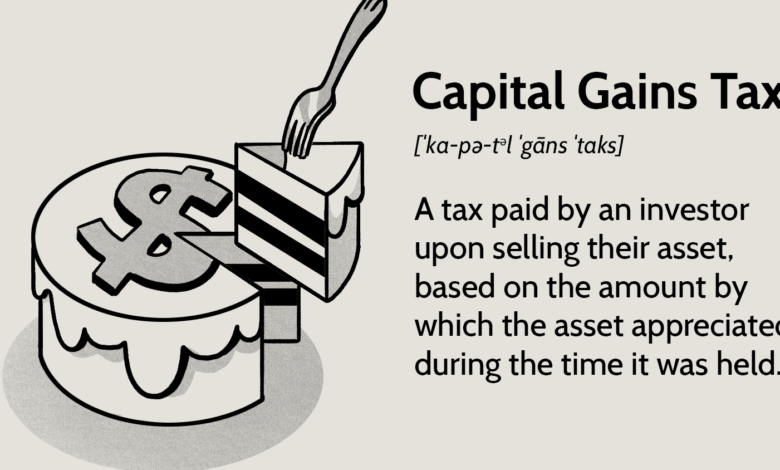How Is The Capital Gains Tax Works For Dividends

Dividends are given to shareholders when a company pays out profits as cash. In the US, there is a tax law called the “Capital Gains Tax”. This tax applies to dividends received and it is calculated on two things: The value of your stock at the time of receipt, and how long you hold onto that stock.
What Is The Capital Gains Tax?
The capital gains tax is a tax on the profits from the sale of assets, such as stocks, bonds and real estate. The tax is based on the amount of gain the individual realizes on their sale. The rate for capital gains depends on your income level and filing status. ev tax credit
For most individuals, the capital gains tax is levied at a flat rate of 20%. However, for those with incomes over $250,000 or $500,000 for singles, the rate jumps to 23.8% for all gains except those held in IRAs and 401(k)s. For couples filing jointly with incomes over $450,000, the rate jumps to 28%.
In addition to regular income taxes, many individuals also owe Social Security and Medicare taxes on their compensation. As a result, the effective tax rate can be much higher than the simple 20% rate.
Capital gains are taxed as ordinary income when they are realized (usually upon sale). Ordinary income is simply all of your salary, wages, tips, investment income (such as dividends), rent and other similar payments you earn. When you sell an asset like stock or real estate, you may realize a gain or
How Does A Capital Gains Tax Work?
The capital gains tax is a tax on the increase in the value of assets such as stocks, real estate, and mutual funds. The tax is assessed when an asset is sold and applies to any gain or loss that occurs on the sale. It’s usually calculated as a percentage of the sale price, with higher rates applying to assets that have appreciated more recently. There are exceptions for some types of assets, such as collectibles and farmland.
There are several ways to reduce your capital gains tax bill. One way is to defer gain until you sell the asset. You may also be able to claim losses incurred in prior years, which can reduce your taxable income. Finally, you can invest in assets that have lower capital gains rates, like bonds or money market accounts.
Impact Of A Capital Gains Tax On Investors
Capital gains taxes are one of the most important taxes for investors. A capital gains tax is paid when an investor sells a security that has increased in value. The amount of the capital gains tax depends on the type of security and the country in which the sale took place. americantaxservice.org
The Capital Gains Tax Rate For Dividends Is 20 Percent
The Capital Gains Tax Rate For Dividends Is 20 Percent. This means that if you sell a security that has increased in value by 20 percent, you will pay a capital gains tax on that increase. In most cases, this tax is computed as the difference between the original purchase price and the sale price of the security.
How Capital Gains Are Calculated For Dividends
Capital gains are calculated based on the difference between the original purchase price and the sale price of a security. This difference is usually determined using an equation known as the “price-to-earnings” (P/E) ratio. The P/E ratio compares how much money a company has earned relative to its stock price.
For example, if you purchase 100 shares of ABC Company for $10 each, and one year later sell these
Who Is Exempt From The Capital Gains Tax?
The capital gains tax is a tax on the increase in the value of assets, including stocks, bonds, and real estate. Generally, people who are exempt from the capital gains tax are extremely wealthy individuals, investors in certain types of limited partnerships, and certain types of trusts.
While most people subject to the capital gains tax are not wealthy individuals or investors, there are a few exceptions. The first exception is that anyone who is married filing jointly with income below $183,000 is generally exempt from paying the capital gains tax on any capital gain from the sale of a primary residence. Additionally, self-employed individuals who make less than $400,000 per year are also generally exempt from paying the capital gains tax.
The second exception is that any individual who is 65 or older and has owned a qualifying retirement account for at least 5 years is exempt from paying the capital gains tax on any capital gain from the sale of a qualifying retirement account. This exemption does not apply to inherited retirement accounts.
The final exception is that any individual who was a bona fide resident of Canada during the entire relevant period (that is, during all of the years between
Pros and Cons of a Capital Gains Tax
A capital gains tax is a tax on the increase in the value of assets, such as stocks and property. When you sell an asset, such as stock, you may owe capital gains taxes on the difference between the sale price and the purchase price. The tax is based on your percentage of ownership of the asset at the time of sale.
There are many pros and cons to a capital gains tax. Some people argue that it is important for governments to generate revenue through taxes, and that a capital gains tax is a fair way to do so. Other people argue that a capital gains tax is unfair because it is applied only to wealthy individuals and corporations.
Ultimately, it is up to each individual to decide whether or not they believe a capital gains tax is fair.




